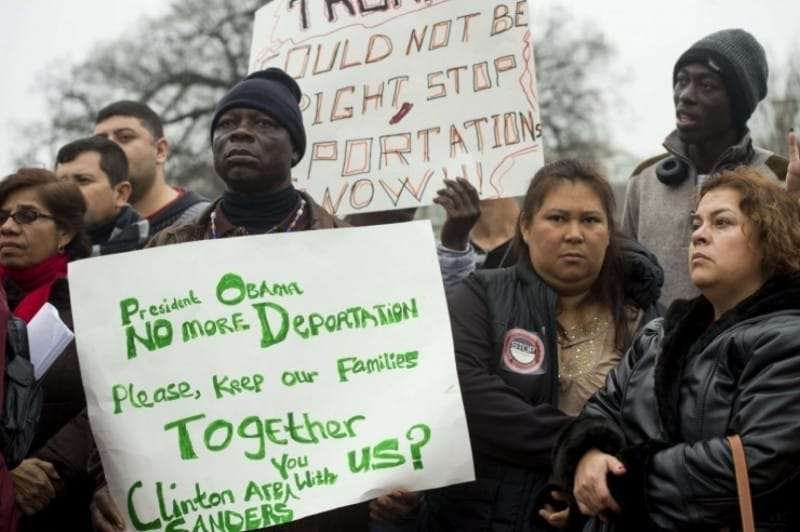The Volokh Conspiracy
Mostly law professors | Sometimes contrarian | Often libertarian | Always independent
Thoughts on today's Supreme Court immigration ruling

The Supreme Court today split 4-4 on the legality of President Obama's DAPA policy, which deferred deportation for some 4 million of the estimated 11 million undocumented immigrants currently in the United States. As co-blogger Jonathan Adler points out, this means that the lower court ruling invalidating the policy is affirmed - at least for the moment. But it also means that the long-term future of this issue remains up in the air, because the Court did not issue any binding opinion - or indeed any opinion at all other than a brief order indicating that the the lower court ruling was affirmed by an equally divided Supreme Court. This leaves open the possibility that supporters of the president's policy might still prevail in the long run.
The 4-4 split was predictable based on what happened in the oral argument. The Court's ruling does not indicate which justices voted which way. But based on their statements at the oral argument, it seems likely that the Court split along ideological lines, with the four liberal justices voting to uphold the president's policy, and the four conservatives voting to strike it down. If so, this result is unfortunate. For reasons I outlined here and here, there was good reason for at least some of the conservative justices to uphold the president's policy based on their own longstanding commitments to originalism and to the principle of the unitary executive.
At least in the short run, the Court's ruling means that the president's policy is dead in the water, because the decision leaves in place the lower court injunction against it. However, the Obama administration (or its successor) does have a number of options going forward. One step it can take is to simply reissue the policy in a slightly different form, which would lead to a new round of legal challenges to it. As I explained in this post, it could do so by omitting the most controversial aspect of the policy - the grant of "lawful presence" to its beneficiaries. That provision does not actually give any significant benefits to the migrants in question; despite the terminology, it does not actually legalize their entry into the US. But it raised considerable controversy at the Supreme Court oral argument, and has given opponents of the policy one of their main rhetorical points.
Because the lower court decision merely affirmed a preliminary injunction by the trial judge, the Obama administration (or its successor) could potentially also try to seek a final judgment on the policy as it currently exists. That might lead to a lower court ruling against the policy, which could then be appealed to the Supreme Court.
When and if this issue returns to the Supreme Court, it is likely that a new justice will have been confirmed to fill the seat vacated by the unexpected passing of Justice Antonin Scalia. At that point, the Court will be in a position to issue a binding ruling one way or the other. Unless and until that happens, there will be continued uncertainty about the scope of executive power in this important field.
The Supreme Court is unlikely to have to consider this question again if Donald Trump wins the presidential election, in which event he will almost certainly simply rescind President Obama's policy. But both Hillary Clinton and Libertarian Party candidate Gary Johnson (who is doing well in polls), support Obama's policy and are likely to continue it in some form. If either of them prevails in November, this question may well come back to the Court in the near future.


Show Comments (0)